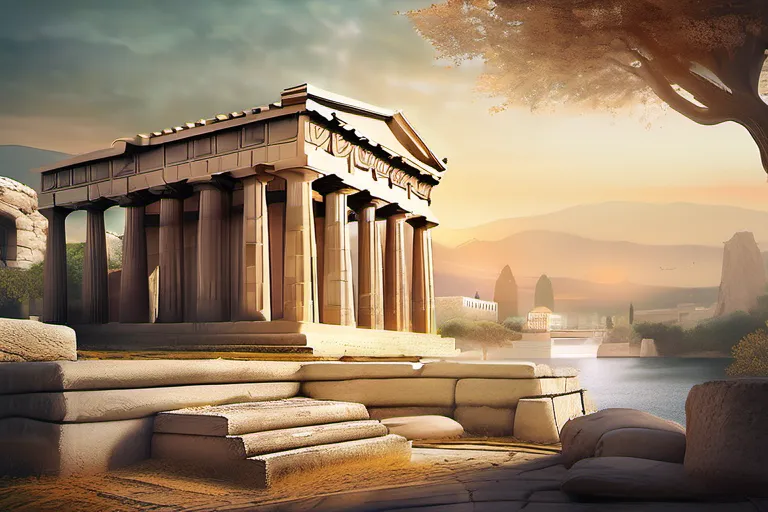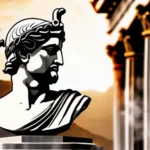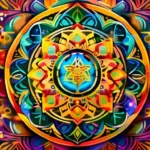Explore the fundamental beliefs, practices, and deities of ancient Greek religion.
Delve into the fascinating world of Hellenic paganism, a rich and complex religious system that shaped the lives of ancient Greeks. From the pantheon of gods to the rituals and festivals, this guide will provide you with an in-depth understanding of the central principles of this ancient faith.
The Hellenic Pantheon
The Hellenic Pantheon: Explore the diverse and complex pantheon of gods and goddesses in Hellenic paganism, including their roles, attributes, and relationships.
Imagine a grand theater where each deity plays a unique role on stage—Zeus as the thunderous king, Apollo as the sun’s radiant light, Athena as the wise protector. But who are these figures beyond their theatrical personas? Each god or goddess is like a character in a sprawling epic saga, with a rich backstory that intertwines with human lives and the fabric of existence.
Consider Athena, known for her wisdom and courage. She’s not just a deity of warfare; she embodies strategy and intellect, often depicted as a wise warrior. Could this be why Athens named itself after her? Is it because in their relationship with humans, she teaches us to think critically and act wisely?
Or take Hades, the enigmatic ruler of the underworld. His dark realm is not just a place of punishment but also one of transition and rebirth. What does his domain teach us about life’s eternal cycle? Could our fear or fascination with death be mirrored in how Hades, despite his grim associations, carries such profound respect?
Then there’s Hera, Zeus’s wife, often portrayed as the epitome of marital fidelity and jealousy. Her stories reveal much about power dynamics and domestic conflicts. Is her wrath a reflection of the human struggle for control or dominance in relationships? What lessons can we draw from her tales?
These deities’ relationships with each other and humans are intricate, much like a well-crafted novel. For instance, consider Hermes, god of travelers, thieves, and boundaries. His attributes blend practicality and mischief, making him both a protector and a trickster. How does his role as the messenger of the gods highlight communication’s power? Can we see parallels in our modern world where words can bridge or build walls?
Each deity’s character is more than a myth; they are symbols that speak to the human condition, offering insights into virtues like wisdom, strength, and justice. Understanding their roles helps us navigate complex emotions and societal norms.
So, as we delve deeper into the Hellenic Pantheon, remember that every god or goddess is not just a divine figure but also a mirror reflecting aspects of human experience. What do you think these stories tell us about ourselves?
Heroes and Mortals in Greek Mythology
Imagine stepping into the world of ancient Greece, where every stone and tree whispered tales of heroes and mortals whose lives were intertwined with the divine. In this realm, heroes like Hercules and Achilles weren’t just mythical figures—they embodied virtues that resonated deeply within Hellenic society. How did these legendary characters gain such stature? What made them so significant to the people of Greece?
The stories of heroes often mirrored the lives of ordinary mortals, yet they were imbued with a sense of grandeur and destiny. Achilles, for instance, was not just a warrior but a symbol of hubris, his tragic flaw leading him to his untimely death. How did such human flaws become so central in the narratives that shaped Greek culture? Was it merely coincidence or were these stories serving a deeper purpose?
The tales of heroes and mortals in Hellenic paganism are like threads woven through a vast tapestry, each one adding its unique pattern to create a rich, colorful picture. These figures often served as moral guides, their actions providing lessons on virtue, courage, and the consequences of ambition. But what does this say about the values that Greek society held dear? Were these heroes simply meant to entertain or did they serve an essential role in shaping cultural identity?
Consider Hermes, the messenger of the gods, whose swiftness and cunning were celebrated. He was not just a divine figure but also a common man’s protector, often invoked during journeys. How did such a multifaceted deity gain such widespread reverence? Did his attributes reflect broader societal concerns or aspirations?
The stories of these heroes and mortals are not merely ancient lore; they are echoes from the past that still resonate today. They offer insights into the human condition, the eternal struggle between good and evil, and the complex nature of morality. In understanding these characters, we gain a deeper appreciation for the profound influence of Hellenic paganism on our own cultural narratives.
As we delve further into the rituals and festivals that defined this ancient religion, it becomes clear that the lives of heroes and mortals were central to its fabric. These stories provided a lens through which people could explore their own hopes and fears, making them more than just entertainment—they were vital tools for spiritual and moral guidance.
The Role of Rituals and Festivals
The Role of Rituals and Festivals: Explore the various rituals and festivals that were an integral part of Hellenic paganism, understanding their purpose and significance.
Imagine stepping into a bustling ancient Greek city where the air is thick with incense and the sounds of flutes mingle with the voices of worshippers. How would you describe this scene to someone unfamiliar with Hellenic Paganism? These rituals and festivals were not just celebrations but profound expressions of faith and communal identity.
Consider the Dionysia, a festival dedicated to Dionysus, god of wine, theater, and ecstasy. It was more than a party; it was a spiritual journey where performers enacted stories that explored the depths of human emotions and the mysteries of life and death. Imagine actors portraying tragic heroes whose stories resonated deeply with the audience, offering insights into their own lives.
Then there were the Lysistrata festivals, which honored both Eros (god of love) and Aphrodite (goddess of beauty). These events celebrated fertility, love, and harmony. Think about a community coming together to celebrate the bonds that unite them—these rituals served as a reminder of the interconnectedness of all living beings.
Each festival had its unique role in the spiritual life of ancient Greeks. The Olympia games, for instance, honored Zeus and were not just about athletic prowess but also a celebration of human achievement and excellence. These games brought people from across Greece together, fostering a sense of shared identity and unity.
Understanding these rituals and festivals is like peering into the heart of Hellenic Paganism—a complex tapestry woven with threads of religion, culture, and social cohesion. By engaging in these practices, ancient Greeks not only worshipped their gods but also strengthened their communities and celebrated the beauty of life itself.
Temples and Sanctuaries in Ancient Greece
Imagine stepping into a vast, ancient temple, its columns reaching toward the heavens like towering sentinels guarding sacred grounds. In the heart of ancient Greece, these temples were not just buildings but gateways to the divine realm. Each sanctuary was a place where humans could connect with theoi, the gods and goddesses who governed their lives.
The most revered of all Greek sanctuaries is the Temple of Apollo at Delphi, often referred to as the ‘navel of the earth.’ This site was believed to be where the world held together, a place where oracles provided wisdom and guidance. Imagine the awe and reverence felt by worshippers as they approached this holy ground, seeking insight into their future or the will of the gods.
Temples were not only places of worship but also centers for social gatherings, where festivals and competitions like the Olympic Games were held in honor of Zeus, the king of gods. These events brought people together from across Greece, fostering a sense of unity and shared cultural identity. Picture the grandeur of these gatherings, with athletes and poets vying for glory, their performances celebrated as offerings to the gods.
Other sanctuaries were dedicated to specific deities. Athena, patroness of wisdom and skill, had several temples, including the Parthenon on the Acropolis in Athens. This magnificent structure served not only as a sanctuary but also as a symbol of Athenian power and cultural pride. Can you imagine the awe felt by visitors as they gazed upon this architectural marvel, its friezes depicting scenes from Greek mythology?
Sanctuaries were essential for maintaining the balance between humans and gods. In ancient Greece, the belief was that sacrifices and rituals could appease the gods and ensure their favor. Think of offerings like libations, animal sacrifices, or even the dramatic performances in theaters, all seen as ways to communicate with the divine.
The architectural beauty of these temples, with their intricate designs and proportions, reflected the mathematical and artistic principles that were highly valued in Greek culture. Each temple was a testament to human ingenuity and devotion, standing as timeless reminders of the profound connection between humans and the divine.
The Influence of Hellenic Paganism on Western Culture
The influence of Hellenic Paganism on Western culture is profound and far-reaching, much like the ripples from a stone thrown into a tranquil lake. Have you ever wondered how the myths and legends of ancient Greece have shaped our understanding of art, literature, philosophy, and politics? From the grandeur of classical architecture to the depth of philosophical inquiry, Hellenic Paganism has left an indelible mark on Western civilization.
Consider the statues that line museums and galleries—do they not reflect the ideals of beauty and proportion that were central to Greek aesthetics? The Parthenon itself, with its harmonious proportions and elegant columns, is a testament to architectural genius influenced by Hellenic principles. Can you imagine Western art without the influence of these masterpieces?
In philosophy too, the echoes of ancient Greece reverberate through time. Think of Socrates, Plato, and Aristotle—these giants of thought whose ideas have shaped modern philosophical discourse. Their work often referenced or built upon Hellenic religious concepts, making it difficult to separate their teachings from the broader cultural context.
And what about politics? The democratic ideals that emerged in ancient Athens laid the groundwork for many contemporary political systems. Could democracy as we know it exist without the foundational ideas of citizenship and participation that were central to Greek society?
The impact of Hellenic Paganism is not just historical; its legacy continues to shape our world today. From academic disciplines like Classics and Philosophy, to modern artistic movements and even contemporary spiritual practices, the influence of ancient Greece remains a constant presence. It’s as if the spirits of ancient deities still whisper through the corridors of time, guiding us with their wisdom and beauty.
So next time you admire a statue in a museum or read a work of literature that draws from Greek mythology, pause for a moment. Reflect on how deeply embedded in our culture these influences are. The legacy of Hellenic Paganism is more than just history; it’s an ongoing dialogue between the past and the present.
Modern Practices and Revivals
How does one navigate through the modern landscape of spirituality and find a connection to something as ancient as Hellenic Paganism? The revival of this once vibrant religious tradition is not just about bringing back old rituals, but it’s also about reclaiming a sense of identity that feels lost in the chaos of contemporary life. In many ways, Hellenic Paganism serves as a bridge between the past and present, offering practitioners a way to understand their roots while finding meaning in the modern world.
One of the key aspects of modern Hellenic Paganism is its focus on personal deities. Unlike traditional religions where one god or goddess reigns supreme, Hellenic Paganism acknowledges multiple gods and goddesses. Each deity represents a facet of human experience—love, war, wisdom, fertility—and this polytheistic approach allows individuals to connect with the divine in diverse ways. It’s like having a toolbox filled with different tools; each one is useful for specific tasks.
Another important practice is sacred space creation. Modern Hellenic Pagans often set up altars in their homes, adorned with images of deities and symbols that resonate personally. These spaces serve as sanctuaries where individuals can perform rituals, meditate, or simply find solace amidst the daily hustle. Just like how a well-designed garden provides a sense of peace, these sacred spaces offer a spiritual retreat from the outside world.
The revival of Hellenic Paganism also includes seasonal celebrations. These festivals, such as the celebration of Epiphany or Hekate’s Night, mirror ancient traditions and provide opportunities for community bonding. Through these gatherings, modern practitioners can honor their heritage and forge connections with like-minded individuals who share similar beliefs.
In conclusion, Hellenic Paganism in the 21st century is a living tradition that adapts to contemporary needs while honoring its ancient roots. It’s about finding harmony between past and present, and using this ancient wisdom to navigate the complexities of modern life. As we continue to explore these practices, we might find ourselves asking: What can the gods teach us today? And how can their lessons guide us through our own journeys?
Conclusion
 By the end of this article, you’ll have a solid grasp of the key elements that defined Hellenic paganism. You’ll be able to appreciate the beauty and complexity of this religion and gain insights into its lasting impact on Western culture.
By the end of this article, you’ll have a solid grasp of the key elements that defined Hellenic paganism. You’ll be able to appreciate the beauty and complexity of this religion and gain insights into its lasting impact on Western culture.











